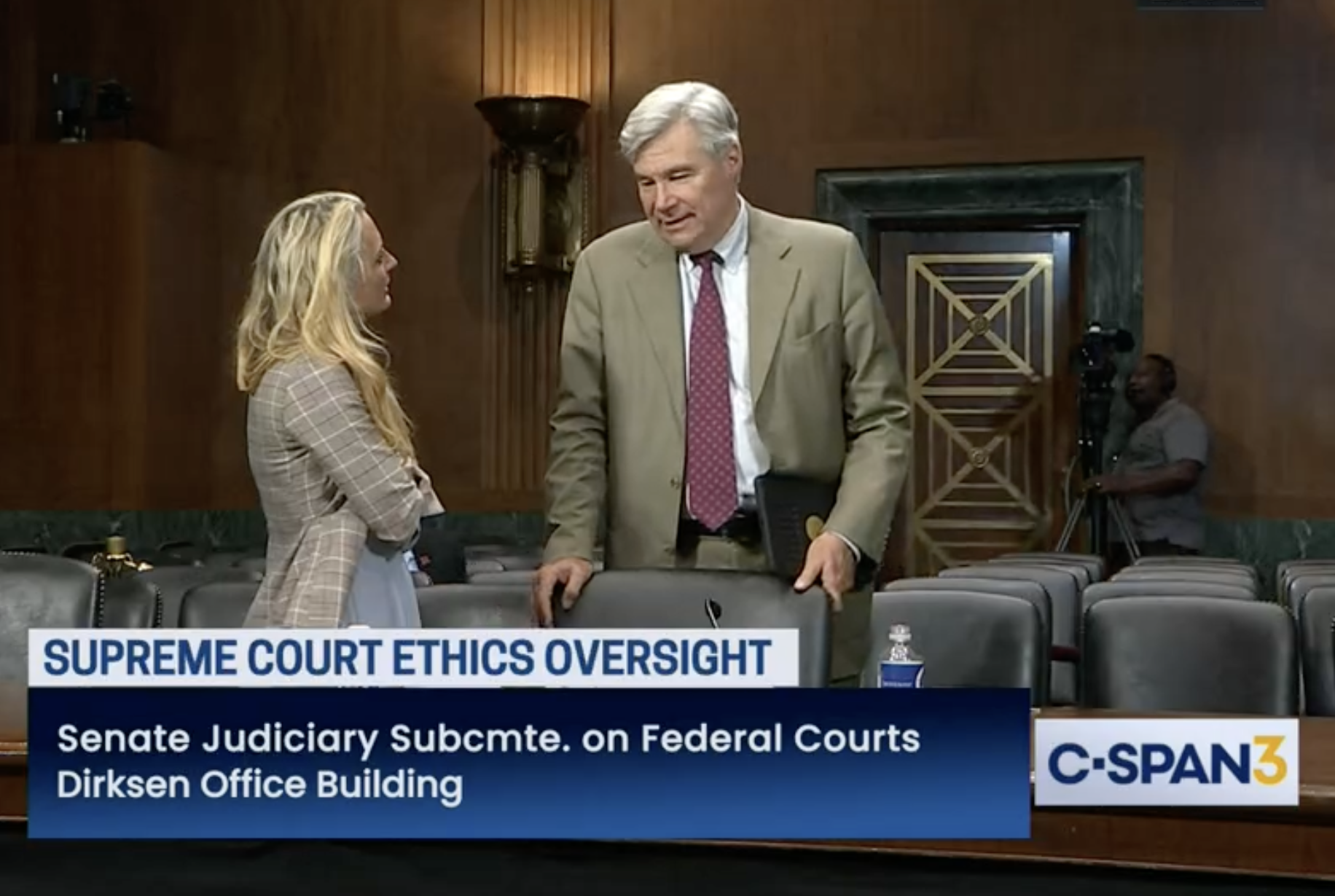Senate Hearing Maintains Focus on SCOTUS Ethics
By Zach Klein, FTC intern
 The Senate Judiciary’s Courts Subcommittee held a hearing on the Supreme Court Ethics, Recusal, and Transparency (SCERT) Act of 2023 today that illuminated the need for enhanced recusal standards for the justices as their institution faces various ethics scandals and declining public approval.
The Senate Judiciary’s Courts Subcommittee held a hearing on the Supreme Court Ethics, Recusal, and Transparency (SCERT) Act of 2023 today that illuminated the need for enhanced recusal standards for the justices as their institution faces various ethics scandals and declining public approval.
The SCERT Act seeks to clarify the situations that require a justice to step aside from a case, from financial holdings to spousal entanglements, and would require the nine to disqualify themselves from cases in which a party has recently given them a gift or free travel. It would also require a cooling off period between the time in which an organization spends money on a justice’s confirmation and when that justice participates in a case concerning that very group.
Sen. Whitehouse emphasized it’s essential for justices to offer public explanations for their recusals to lend credibility to their decisions, as Justice Kagan has done twice in the last month. The SCERT Act intends to extend this practice, thereby ensuring the court upholds the highest standards.
Donald Sherman from CREW highlighted a Wall Street Journal report from 2021 that revealed numerous federal judges — both Democratic and Republican appointees — presided over cases in which they had a financial material interest, demonstrating that the shortcomings on recusal are branchwide and have no partisan bent. “The SCERT Act is not retaliatory or political. It’s about maintaining impartiality and ethical integrity,” Sherman said.
Scalia Law Prof. Jennifer Mascott, however, pointed to the tension between the Supreme Court and public opinion — and that the justices need not be so concerned about what the public thinks about them. “The court should focus on the law rather than public controversy,” Mascott said.
Hofstra Law Prof. James Sample spoke about the need to go beyond the existing recusal statute, which states that any judge or justice must disqualify themselves if their impartiality “might reasonably be questioned,” and ensure there’s a neutral arbiter that can help a judge make a recusal decision in a close case.
The SCERT Act would, in fact, formalize this standard by requiring an impartial panel (in the case of the Supreme Court, that panel would be the other eight justices) to decide whether a judicial officer is conflicted. Gamesmanship of other justices forcing their peers to recuse would be highly unlikely, according to Prof. Sample, as the Court has shown that even through vehement disagreements, they still have, and need to maintain, a working relationship.
Furthermore, the Court was able to function as eight for a whole year when the Senate refused to give nominee Merrick Garland a hearing and a vote, he added.
Questions remain about the authority of Congress to regulate the Supreme Court, with some believing that influencing decisions through forced recusals is beyond its authority, though others, like Sen. Whitehouse, argue that congressional oversight has always been part of the Court’s structure and should continue. As Prof. Sample pointed out, Congress already regulates the size of the Court, their salaries, the budget and the quorum requirements and just last year passed a bill bringing the third branch, including the justices, under the STOCK Act.
Despite some opposition, it’s clear that the SCERT Act has stirred vital dialogue about the Supreme Court’s ethical standards.